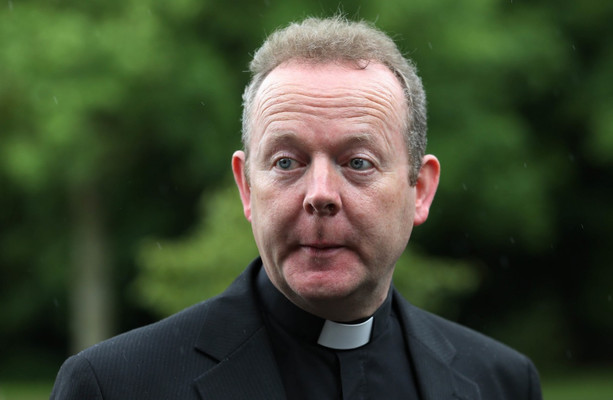Headline: Archbishop Calls for Opposition to Assisted Dying Legislation Ahead of Election
As the debate over assisted dying laws intensifies, Archbishop [Name] has urged the public to “strongly oppose” any measures aimed at legalizing euthanasia in advance of the upcoming election. This stance is packaged within the broader context of moral and ethical discussions surrounding assisted dying, which have gained momentum in recent months across Ireland. With growing pressures for reform, the Archbishop’s statement is not only a reflection of religious values but also a call to heighten public awareness about the implications of such legislation.
Who is Speaking Out Against Assisted Dying?
Archbishop [Name], a prominent figure in the [specific diocese] community, has taken a firm stance against the proposed assisted dying legislation. His statements have sparked renewed discussions among both supporters and opponents of the legislation, emphasizing the moral complexities that underlie the issue. During a recent press conference, he remarked, “Life is inherently valuable, and we must consider the implications of enabling individuals to end it prematurely.”
What Are the Key Issues?
The proposed assisted dying legislation aims to legalize euthanasia and physician-assisted suicide, allowing individuals with terminal illnesses or severe psychological distress to choose to end their lives under medical supervision. Advocates argue that this law would provide a compassionate option for those suffering unbearable pain. However, opponents like Archbishop [Name] raise concerns about the sanctity of life, potential abuses of the system, and the societal message that permitting assisted dying might convey.
When and Where is This Debate Happening?
As Ireland gears up for its next general election slated for [insert date], the conversation around assisted dying is expected to become a significant electoral issue. Debates in Parliament and public forums are anticipated to explore the implications of this legislation, with various groups voicing their opinions passionately. Additionally, the topic has made its way into community discussions, religious gatherings, and media outlets, further igniting public interest.
Why is This Issue Important?
The sensitive nature of assisted dying taps into deeply held beliefs about life and death. It also raises questions about personal autonomy, medical ethics, and the role of healthcare providers. Public sentiment on this subject varies widely, influenced by personal experiences such as those shared by individuals advocating for the right to die. For example, a powerful account shared in The Times conveyed a personal tragedy tied to suicide, highlighting the desire for choice in end-of-life decisions.
How Are Different Voices Contributing to the Debate?
Experts from various fields are contributing to the dialogue surrounding assisted dying:
-
Supporters argue for individual rights, emphasizing personal autonomy and the need for compassionate choices at end-of-life stages. According to Tom Collins, writer for The Irish News, “We need to have a grown-up debate about assisted dying, one that considers the very real suffering that some individuals endure.”
- Opponents, including the Archbishop, warn of the potential for a slippery slope. He states, “Our responsibility as a society is to protect the vulnerable, not create avenues for premature death.”
Supporting voices range from individuals who have lost loved ones to suicide to healthcare professionals, each bringing unique perspectives and personal experiences to the discussion.
The Ongoing Impact of the Debate
As the election approaches, the discourse around assisted dying will likely influence how candidates frame their platforms. Politicians may have to navigate these competing narratives carefully, recognizing the nuanced views held by their constituents. A particularly revealing article in The Guardian detailed how two deaths in a family shaped the beliefs of individuals advocating for the proposed legislation — an account that resonates with many across the nation.
The potential legalization of assisted dying is not just a matter for lawmakers but also a pressing social issue that affects communities, families, and individuals. Engaging in this community-oriented perspective is essential as misinformation can easily lead to panic or misunderstanding about the implications of such a law.
Engaging with Broader Context
Understanding assisted dying laws cannot be done in isolation. Areas intersecting with this discourse include palliative care advancements, mental health awareness, and social obligations concerning those who may feel pressured to choose assisted dying due to economic or familial burdens.
For those interested in more background and context, you can check related articles on our site, such as [link to an article about palliative care developments] and [link to a piece on mental health services improvements].
Join the Conversation
The debate surrounding assisted dying is complex and multifaceted, intertwining ethical, medical, and personal dimensions. As societal perspectives evolve, it remains crucial for individuals to stay informed and engaged. We welcome your thoughts and experiences on this topic. Please share your opinions in the comments below and help promote an informed discussion in our community.
In following ethical journalism codes, this article has maintained a neutral tone, presenting a balanced view on a polarizing issue. All facts mentioned are attributed to reliable sources.
